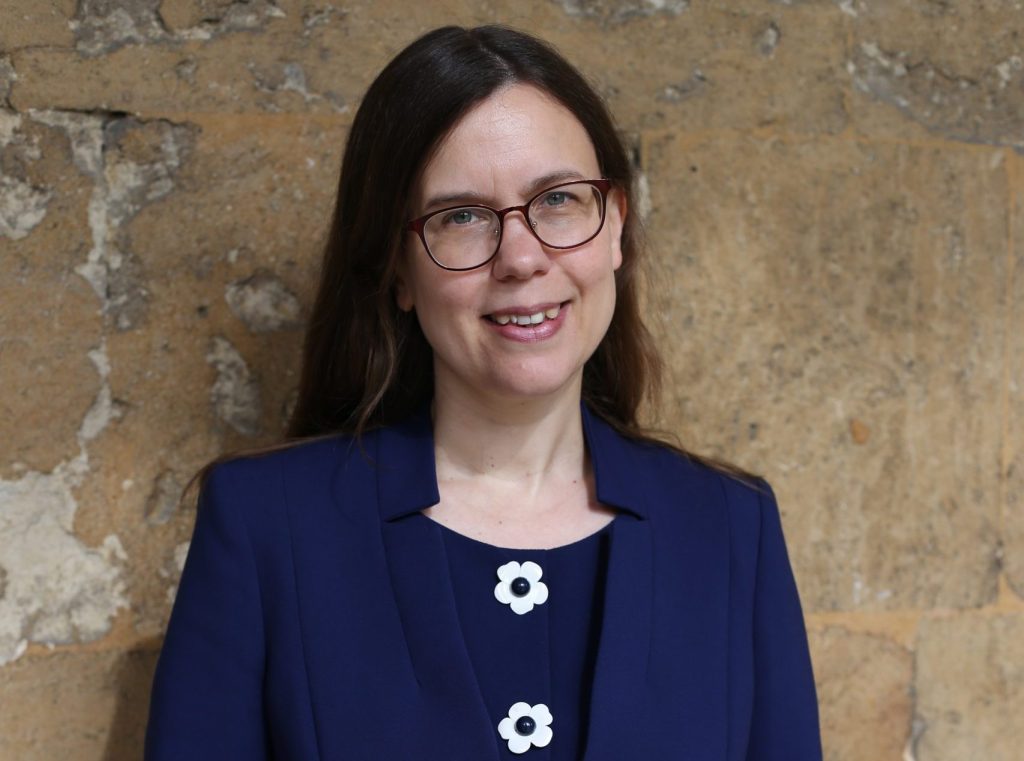Professor Alexandra Wilson, Senior Research Fellow in Music, is to publish a new book that investigates why, when and how the opera-elitism stereotype developed in Britain.
Someone Else’s Music: Opera and the British (OUP, 2025) is the first book to explore shifting cultural attitudes towards opera over the past 100 years, and reveals a hidden history of popular opera-going in Britain that counters perceptions of opera’s supposed elitism.
Alexandra, a musicologist and cultural historian, uses opera as a lens through which to examine the broader history of changing cultural values in the UK, from 1920s Reithian ideals about art’s civilizing qualities to contemporary culture wars. The controversies opera has prompted over the last century reveal a great deal about national identity: who Britons think they are, and who they want to be.

Professor Alexandra Wilson, Senior Research Fellow in Music
The book ranges widely across topics including education, public broadcasting, arts policy, and attitudes towards subsidy, and traces opera’s surprisingly close relationship with popular culture. Alexandra introduces readers to a diverse cast of characters, including working-class East-End opera fans, opera-singing Welsh miners, soldiers discovering opera in wartime Italy, and holidaymakers watching it at Butlin’s.
She says, “A few years ago I wrote a book about operatic culture in 1920s Britain [Opera in the Jazz Age]. It was quite clear to me that opera was not regarded as elitist at that time, so I wanted to find out what happened between then and now, and I also wanted to investigate why the British relationship with opera was particularly fraught. My new book, which was funded by a Leverhulme Major Research Fellowship, is the product of many years’ research, and took me to all sorts of fascinating archives. It became quite clear that opera was enjoyed by countless people from diverse backgrounds prior to the rise of the pernicious elitism stereotype – there used to be, for instance, a really thriving culture of working-class opera-going.”
So when did people start calling opera elitist, and why? Analysing lasting stereotypes around opera, Alexandra reveals them to be ideologically motivated, founded in deep-seated British anxieties about class, education, and national identity.
She says, “The opera-elitism stereotype is a relatively new idea: it started to circulate in the 1980s and gathered real pace through the 1990s and 2000s. A lot of different people have perpetuated the idea, sometimes out of pure laziness, sometimes to serve an agenda – politicians from both ends of the political spectrum, some people within the arts world itself, but overwhelmingly the media. My book shows that the opera-elitism stereotype is not an inherent truth but an ideological construct, and one that does a great deal of harm. It has enabled a situation where opera has become highly vulnerable to cuts, but it’s also really bad for access. Opera is often declared elitist by people who claim to want to make the arts more accessible, but characterising opera as the taste of ‘the posh few’ (to quote a recent Guardian article) signals to people that it is ‘not for the likes of them’ and puts them off trying out something that might otherwise become a source of lifelong joy. My book reveals that opera used to be seen as for everyone – and shows us how it could be again.”
Someone Else’s Music: Opera and the British (OUP, 2025)will be published in the autumn, and available for pre-order here.
- About the author
Professor Alexandra Wilson is a musicologist and cultural historian. After holding two Oxford Junior Research Fellowships, she taught at Oxford Brookes University for nineteen years, latterly as Professor of Music and Cultural History. She is currently Researcher in Residence at the Guildhall School of Music and Drama in London and a Senior Research Fellow at Jesus College, Oxford. She has previously published The Puccini Problem (2007), Opera in the Jazz Age (2019), Puccini’s La bohème (2021) and Puccini in Context (2023). She writes and broadcasts widely about cultural matters, and works regularly with the UK’s leading opera companies.
